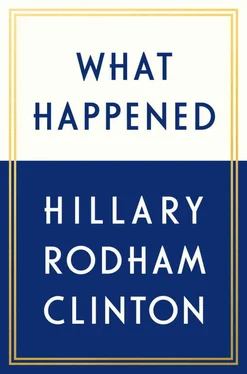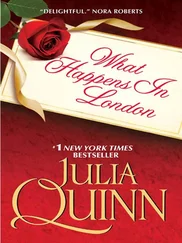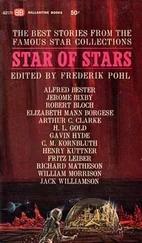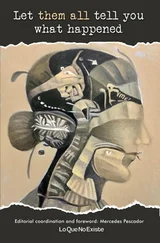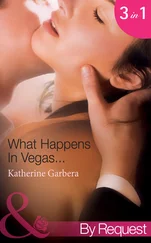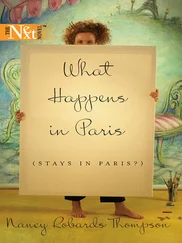Then it was done, and he was our President.
“That was some weird shit,” George W. reportedly said with characteristic Texas bluntness. I couldn’t have agreed more.
We headed up the stairs to leave the platform and go back inside the Capitol, shaking hands along the way. I saw a man off to the side who I thought was Reince Priebus, head of the Republican National Committee and incoming White House Chief of Staff. As I passed by, we shook hands and exchanged small talk. Later I realized it hadn’t been Priebus at all. It was Jason Chaffetz, the then–Utah Congressman and wannabe Javert who made endless political hay out of my emails and the 2012 tragedy in Benghazi, Libya. Later, Chaffetz posted a picture of our handshake with the caption “So pleased she is not the President. I thanked her for her service and wished her luck. The investigation continues.” What a class act! I came this close to tweeting back, “To be honest, thought you were Reince.”
The rest of the day was a blur of greeting old friends and trying to avoid eye contact with those people who’d said terrible things about me during the campaign.
I ran into Supreme Court Justice Ruth Bader Ginsburg, walking slowly but with steely determination. If I had won, she might have enjoyed a nice retirement. Now I hoped she’d stay on the bench as long as humanly possible.
At lunch in the Capitol, I sat at our assigned table and commiserated with Congresswoman Nancy Pelosi, the Democratic leader in the House of Representatives, who I think is one of the shrewdest, most effective politicians in Washington. She deserves enormous credit for marshalling the votes for the 2010 Affordable Care Act under nearly impossible circumstances and for standing up for what’s right whether she’s in the majority or the minority. Republicans have demonized her for years because they know she gets things done.
Senator John McCain of Arizona came over and gave me a hug. He seemed nearly as distraught as I was.
The niece of a top official in the incoming Trump administration came over to introduce herself and whisper in my ear that she had voted for me but was keeping it a secret.
Congressman Ryan Zinke, soon to be Trump’s Interior Secretary, brought his wife over to say hello. This was somewhat surprising, considering that in 2014 he had called me the “Antichrist.” Maybe he’d forgotten, because he didn’t come equipped with any garlic or wooden stakes, or whatever one uses to ward off the Antichrist. But I hadn’t forgotten. “You know, Congressman,” I said, “I’m not actually the Antichrist.” He was taken aback and mumbled something about not having meant it. One thing I’ve learned over the years is how easy it is for some people to say horrible things about me when I’m not around, but how hard it is for them to look me in the eye and say it to my face.
I talked with Tiffany Trump about her plans to attend law school. I kidded with Republican Senator John Cornyn about how I performed much better than expected in his state of Texas. In the President’s remarks at lunch, when he was away from the glare of his angry supporters, Trump thanked Bill and me for coming. Then, finally, we could leave.
Little did I know that the first controversy of the new administration had already begun over the size of the crowd at the inauguration. As is its practice, the U.S. National Park Service quickly published photos to mark the occasion. This time the new President disputed the photographic evidence showing only a modest crowd and demanded that the Park Service go with the lie that the crowds were “huge.” This flew in the face of what we could all see with our own eyes. I had the same view Trump did up there on the platform. Unlike him, I could compare it to what I had seen at inaugurals since 1993. I understood why he became so defensive. There really was a difference.
The episode was silly, but also an early warning: we were in a “brave new world.”
=====
If the inauguration on Friday was the worst of times, Saturday turned out to be the best of times.
I decided to stay at home in Chappaqua, New York, rather than attend the Women’s March protesting the new President. It was another tough call. I wanted badly to join the crowds and chant my heart out. But I believed it was important for new voices to take the stage, especially on this day. There are so many exciting young women leaders ready to play bigger roles in our politics. The last thing I wanted was to be a distraction from the genuine outpouring of grassroots energy. If I showed up, nasty politics would unavoidably follow.
So I sat on my couch and watched in delight as the networks reported huge crowds in dozens of cities across the United States and around the world. Friends sent me excited reports of packed subway cars and streets overflowing with women and men of all ages. I scrolled through Twitter and sent out gratitude and good vibes.
The Women’s March was the biggest single protest in American history. Hundreds of thousands of people gathered in cities like New York, Los Angeles, and Chicago. Thousands also turned out in places like Wyoming and Alaska. In Washington, the march dwarfed the crowd that had gathered to see Trump’s inauguration the day before. And it was completely peaceful. Maybe that’s what happens when you put women in charge.
It was a far cry from what happened when women first marched on Washington, the day before Woodrow Wilson’s inauguration in 1913. Thousands of suffragettes trooped down Pennsylvania Avenue demanding the right to vote, including Alice Paul, Helen Keller, and Nellie Bly. Men lined the way, gawking, jeering, and eventually turning into an angry mob. The police did nothing, and scores of marchers were injured. The violence drew the nation’s attention to the suffragette cause. The superintendent of police was fired. Congress held hearings. And seven years later, the Nineteenth Amendment to the Constitution was ratified, granting women the right to vote.
Nearly a century later, we’d made a lot of progress, but our new President was a painful reminder of how far we still had to go. That’s why millions of women (and many supportive men) were pouring into the streets.
I will confess that the day was bittersweet. For years all over the world, I had seen women driving grassroots movements, assuming power for themselves and their communities, forcing warring armies to the peace table, rewriting the destinies of nations. Were we now seeing the stirrings of something similar in the streets of our own country? It was awe-inspiring, as I said on Twitter at the end of the day.
Yet I couldn’t help but ask where those feelings of solidarity, outrage, and passion had been during the election.
Since November, more than two dozen women—of all ages, but mostly in their twenties—had approached me in restaurants, theaters, and stores to apologize for not voting or not doing more to help my campaign. I responded with forced smiles and tight nods. On one occasion, an older woman dragged her adult daughter by the arm to come talk to me and ordered her to apologize for not voting—which she did, head bowed in contrition. I wanted to stare right in her eyes and say, “You didn’t vote? How could you not vote?! You abdicated your responsibility as a citizen at the worst possible time! And now you want me to make you feel better?” Of course, I didn’t say any of that.
These people were looking for absolution that I just couldn’t give. We all have to live with the consequences of our decisions.
There had been a lot of days since the election when I wasn’t in a very forgiving mood toward anyone, including myself. I was—and still am—worried about our country. Something is wrong. How could sixty-two million people vote for someone they heard on tape bragging about repeated sexual assault? How could he attack women, immigrants, Muslims, Mexican Americans, prisoners of war, and people with disabilities—and, as a businessman, be accused of scamming countless small businesses, contractors, students, and seniors—and still be elected to the most important and powerful job in the world? How can we as a nation allow untold thousands of Americans to be disenfranchised by voter suppression laws? Why did the media decide to present the controversy over my emails as one of the most important political stories since the end of World War II? How did I let that happen? How did we?
Читать дальше
